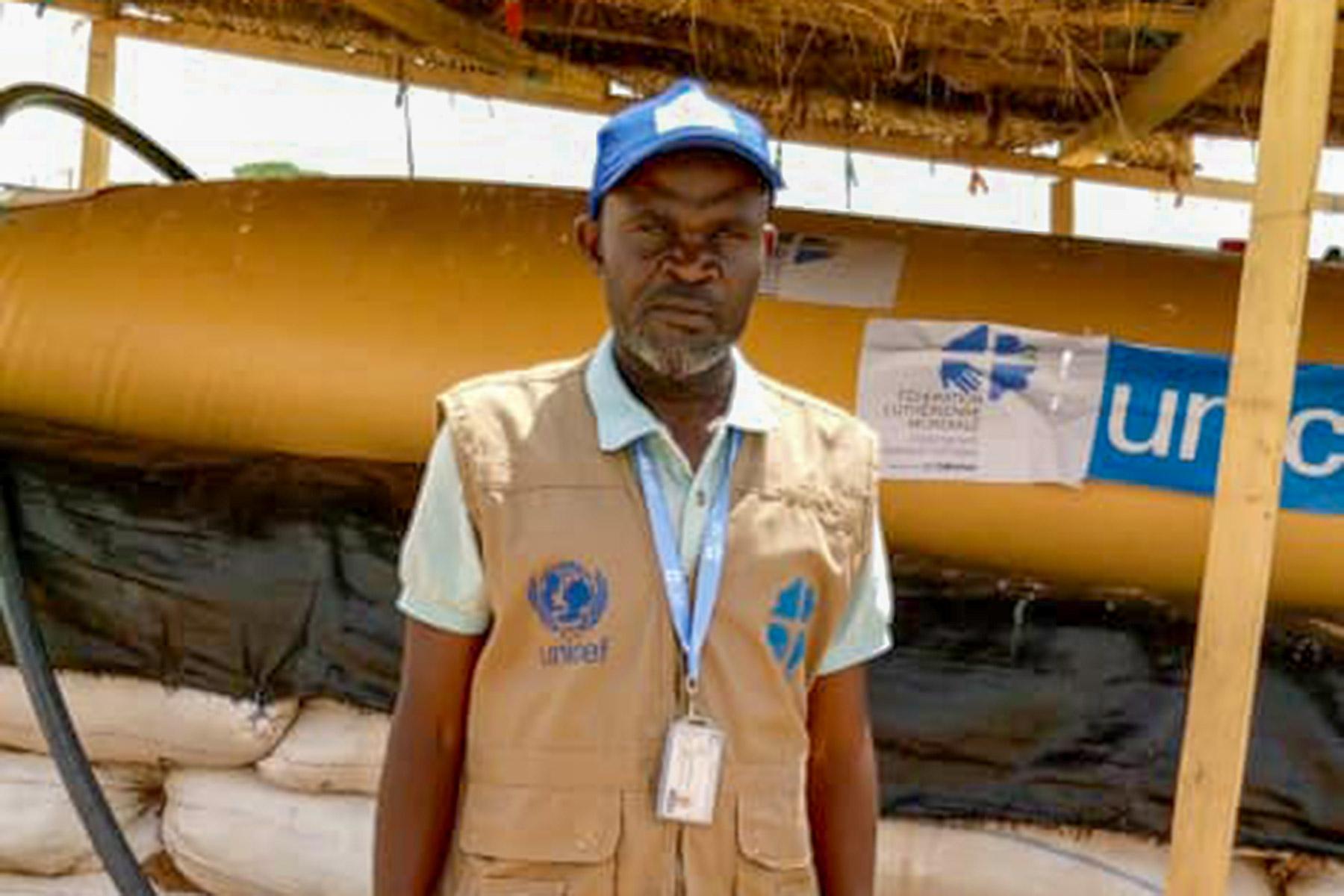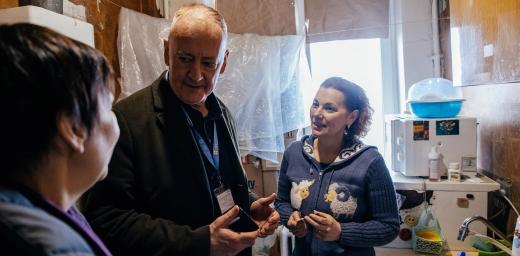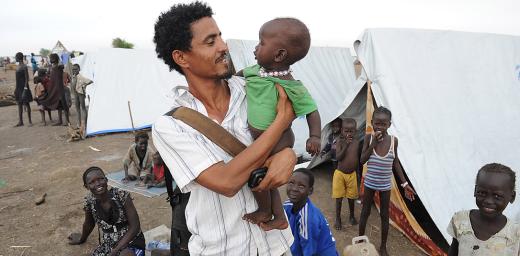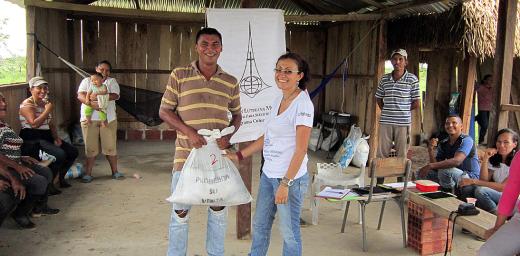Water in the desert
Roger Kalimira, LWF Chad, is at the front line in responding to the humanitarian emergency caused by the Sudan crisis. In this blog, he talks about his experience.

Roger Kalimira, in front of a water bladder he helped install. Photo: LWF/ M. Idjawo
Responding to the Sudan crisis in Chad
I work with LWF in the department of Assoungha specifically in the refugee and returnee sites of Adré, Ourang, Ambilia, Dize-Berthe, Midjiguilta, Koufroun, Arkhoun, Toumtouma, Farchana as well as their host villages.
Large numbers of refugees arrive every day. The humanitarian response in Chad is underfunded, which makes it challenging to meet the people’s needs. There is a huge need of water and sanitation, for example. It is also difficult to access the sites and villages because the roads are poor. With the start of the rainy season at the beginning of August, many are now flooded, especially those passing wadis (seasonal rivers).
Vehicle and motorcycle robbery
Prices for fuel, wood, tarpaulins and construction materials have doubled and tripled in the past weeks. It is difficult to procure relief goods and equipment. Sudan used to be the main supplier for these items, but because of the conflict there, the material comes from N’djamena which is more than 1060 km away.
The situation is insecure here, we have experienced vehicle and motorcycle robbery. There is practically no leisure and the work is intense all week. We attend meetings until 8 p.m. We are so tired when we come back from the field and meetings, we go to sleep to wake up very early the next day on the same routine. There is little time to rest because the needs are so great.
There are precautions we can take, we have a very efficient security management. A large part of the teams (in particular the front line staff) is based in the villages in order to avoid unnecessary drives, and not to be blocked by the flooded wadis.
Smiles and hope
My motivation comes from looking at the smile and the hope on people's faces, for example after installing a drinking water supply system where water gushes out. It warms the heart. At the Ambelia site the refugees had no water for several days when we installed the water bladders filled with borehole water drawn via pumps and generators. These are moments when I think this is worth it, and we no longer feel the lack of sleep and the difficulties of our work.
My motivation comes from looking at the smile and the hope on people's faces
Roger KALIMIRA, LWF WASH and shelter expert in Chad
To work in this difficult context requires a lot of love of work, commitment and the will to give the best of oneself to bring hope and well-being to others. I always aim to do my best, and to make sure people receive what they need for a life in dignity.





